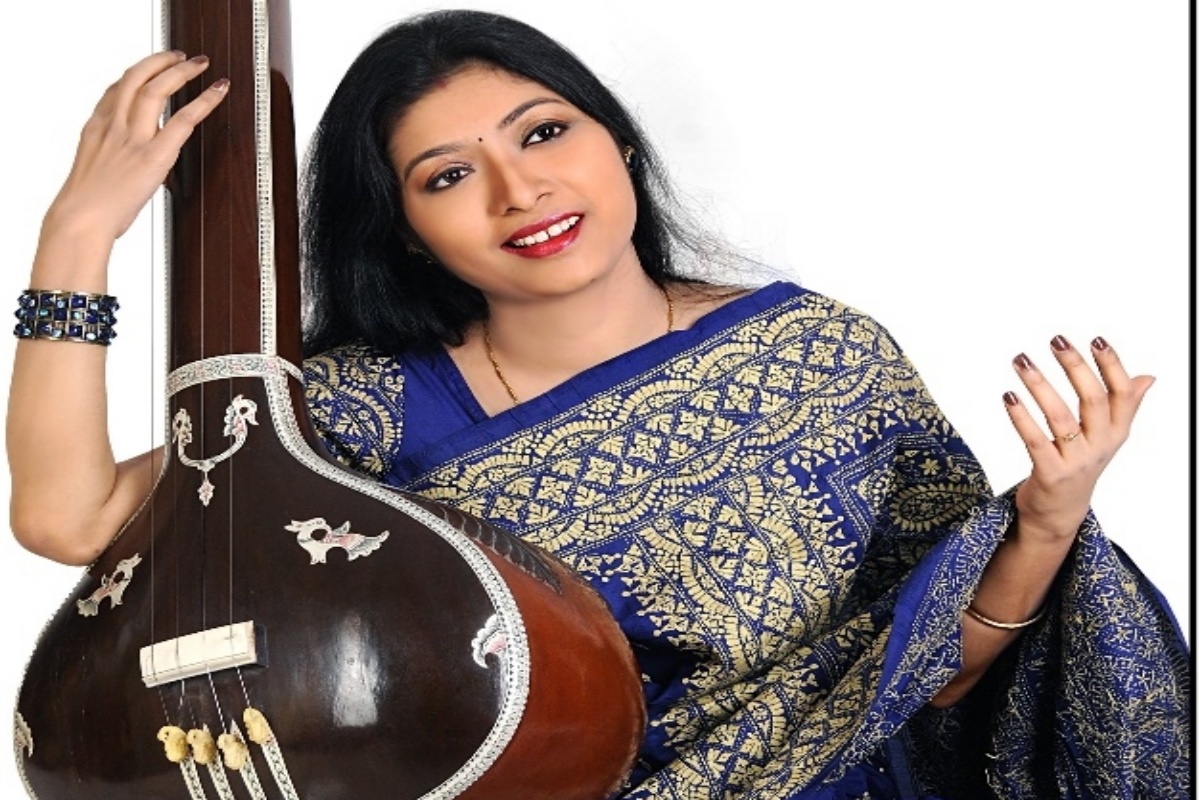The bygone bardic battles of Bengal
Far more than a mere musical pursuit, Kabi Gaan boasts an illustrious heritage, its roots firmly embedded in the fertile soil of 18th century-Bengal’s rural landscape.
For someone who has done 75 digital concerts in the past year, she feels that the medium has been instrumental in reaching out to different audiences all over the globe.

Music is the finest way to meditate: Sohini Roy Chowdhury
Starting her musical journey at the age of four under the tutelage of her paternal uncle and guru, the legendary R.D. Burman, and her grandmother Bokul Sengupta, classical vocalist Sohini Roy Chowdhry clarifies that her childhood was real fun.
“I have been a very diligent student, and also took interest in sports like swimming, basketball and cricket. At the same time, I was very inclined towards all forms of music and dance. My grandmom Bokul Sengupta was the founder of the Geeta Bithika Academy of Music & Dance, a reputed school in Kolkata. Hence, I could attend all the classes, be it in painting, vocal or dance, with ease,” says Chowdhry, who is a Sangeet Prabhakar in Bharatanatyam along with vocal music.
She also happens to be a qualified Chartered Accountant and CFO with a top multinational company.
Advertisement
Also trained by Ustad Sagiruddin Khan, Pandit A.T. Kanan, Malvika Kanan, and Ustad Maskoor Ali Khan at the Sangeet Research Academy, ITC, Kolkata, she performs Thumri, Dadra, Kajri, Chaiti, Sawani, Jhula and Toppa in the ‘Poorab’ style of Benaras gharana.
“I love singing soulful Bhajans, Shyamasangeet, Najrulgeeti and Raag Pradhan learnt from Manabendra Mukhopadhyay and Biman Mukhopadhyay,” she says
Interestingly, after Chowdhury participated in ‘Zee Saregamapa’, she received multiple offers and could have stayed back in Mumbai. However, it was classical music she wanted to pursue.
Talk to her about how she straddles two entirely different worlds of classical music and corporate culture, and the vocalist says that music is definitely closer to her heart.
“However, my father, who is a Chartered Accountant and a musician, always wanted me to be a CA. While I wanted to fulfil his expectations, it was important to pursue my dreams as well. It does take that away from your work – life balance, but at the end of the day, it gives me a sense of satisfaction, doing something productive every minute. Moreover, in today’s world, financial stability has become a challenge for many musicians like us. Hence it’s better to be blessed with a job and then pursue music,” she says.
The vocalist, who frequently travels to remote areas with Spic Macay to promote art and culture, says that born in a family of musicians, it was expected that she learnt the nuances of classical music, but there was no pressure. “It was entirely up to me to pursue the genre of my interest,” she says.
For someone who also runs the NGO ‘Geeta Bithika Academy of Music, Dance and Painting’ that aims to promote art and culture and organises monthly programmes to encourage children to at least know about Indian heritage and culture, even if they don’t take it up as a profession, she says, “Music can at least be taken up as hobby. It is the best way to meditate, as it facilitates you that peculiar inner peace.”
Lamenting that there are very few scholarships, and a dearth of funds for classical arts, she says that it is high time that adequate attention be paid to culture and heritage.
“It must be preserved by encouraging the younger generation by means of grants, scholarships and classical programs. We need to have dedicated television channels on classical music discourses,” she says.
The vocalist, who will be seen in the HCL Baithak on Friday, says that the corporate house is doing a commendable job in encouraging art and culture. “It is high time that others too come forward and do their bit,” she says.
For someone who has done 75 digital concerts in the past year, she feels that the medium has been instrumental in reaching out to different audiences all over the globe.
“Digital concerts definitely have a peculiar advantage. It has helped us to be known everywhere and propagate classical music across the globe. Of course, performing and interacting with a live audience is something which I really miss. Also, travelling to different places, performing there, conducting workshops, getting to know new people, making friends… all that has come to a standstill — something I miss tremendously,” she says.
Striving to develop a unique style, she feels that every Raag has its own beauty and temperament but portraying it soulfully, so that it touches every audience, is a big challenge.
“That is something I am trying to achieve. Fortunately, I have learned many ‘Bandishes’ from many great maestros and would like to document them for the future generations someday,” she concludes.
Advertisement